When I asked for advice on writing my cover letter for tenure-track job applications, I was told to address what I had done in the 16 years between receiving my Bachelor’s degree and going back to school for a Master’s in psychology. Because yes, there is a huge gap in my cv. My draft letter had not done so… it was pointed out that departments want to know something about me beyond my academic records (papers published, courses taught). It was kindly not pointed out that 16 unexplained years could have been spent in prison, in a hippie commune, in a mental institution… insert anything an active imagination can come up with.
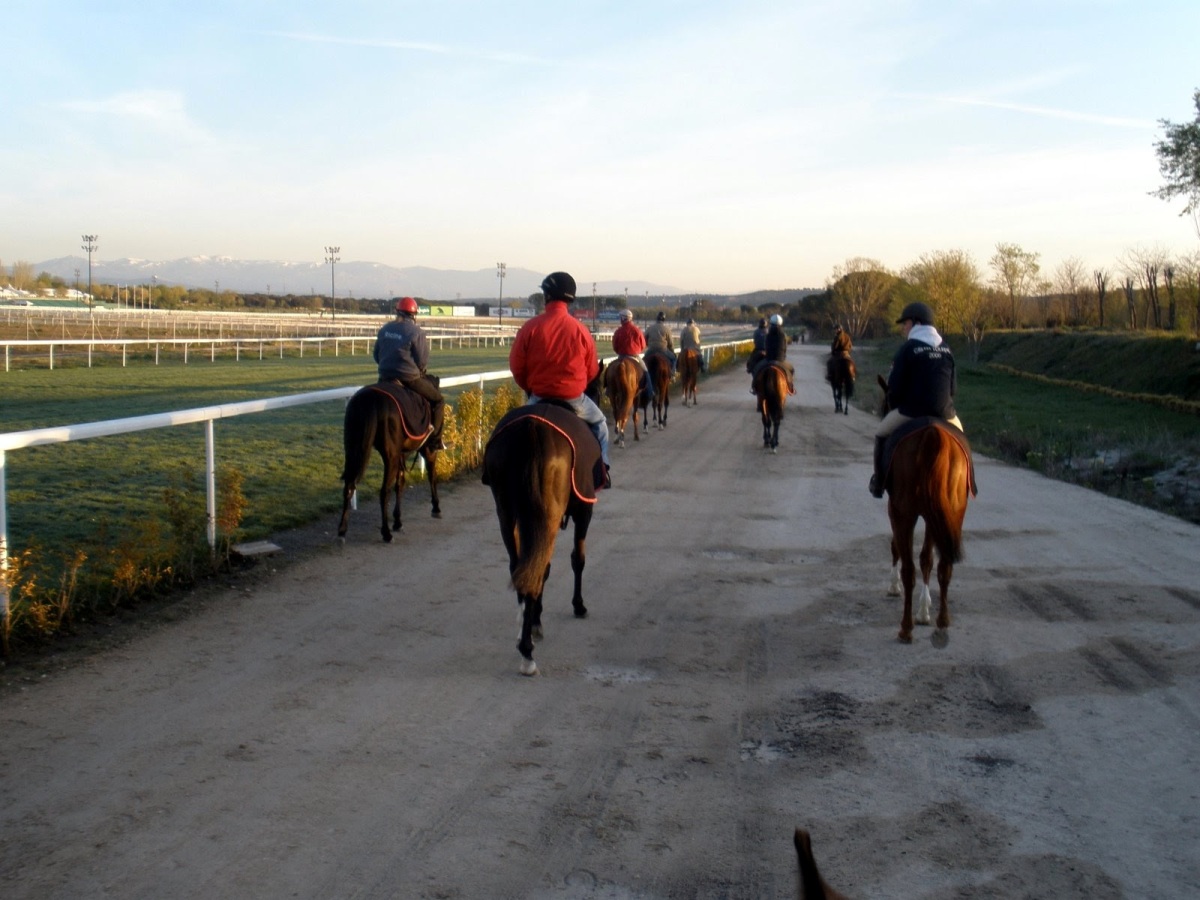
Unless they did some serious stalking, an admissions committee probably would not come up with the truth, so even though that paragraph about what happened in the interim felt weird, I have included it, in some form, in all my letters. It pretty much states what happened: I lived abroad for 16 years, most of them in Spain, but also in Mexico, Panama, and Nicaragua. I trained and rode race horses. I worked for an equine magazine. Years later, I taught at a bilingual British/Spanish school.
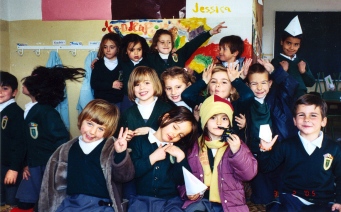
That doesn’t really mean anything… oh a reader could guess that I may know something about horses, children, and Spanish, but how much, and what that knowledge looks like, is not revealed. More importantly, much of who I am that resulted from that time abroad is only tangentially related, if at all, to these broad descriptions.
On music…
For example, my love of lieder began when I tried to play music for my horses at the track in Madrid (I was an amateur owner). The little radio I had would only play a classical station without static. Of course, I was already familiar with classical music; my parents had plenty, my grandfather loved it (I still remember his music collection), and I had played in an excellent high school band that performed, among other things, lots of Tchaikovsky, including the 1812 Overture, Wagner, Dvorak, etc. And I had already developed a certain fascination with Requiems. But I knew nothing of lieder.
At the track, I only listened. I didn’t understand the German, and my budget did not extend to purchasing CDs with lyrics in German and English. That would come later, when I had more money, and when I ran into Schubert’s Erlkönig–one of my favorites encountered on classical radio–writ into the story of Richard Power’s Time of Our Singing. I had read Power’s Goldbug Variations years before (thanks to a wonderful used book store in Madrid); it’s full of Bach, and led to my enduring addiction to the his Goldberg Variations. The Time of Our Singing happened to me much later, when I was already the mother of two small children; it revived my love of lieder and led to a huge collection of CDs.
You can go from the backstretch of a racetrack to Hugo Wolf.
I had gone to Spain with plans to stay a year and then return to the States. I wanted to do premed. Perhaps unfairly, I was not very forthright about this to the people in Spain. I arrived, and refused to make long-term commitments. But I ended up staying. You see, riding and training racehorses is fun. It’s challenging, physically and mentally, especially at first.
On a racetrack on Spain
During the first year, I was so exhausted (muscles work a lot harder when you are a novice). There was no time to be bored. I watched and learned while I rode with many trainers. I ended up with my own horses, my own stable, and took the starting gate test to get my amateur jockey license and the trainers’ exam to get my amateur training license.
In my spare time, I followed vets and farriers around. I learned to perform lameness checks and identify many unsoundnesses from the saddle and from the ground, I learned to draw blood, run a line, how long it takes to drip one liter, or five. From the saddle, I learned to count time, and calculate whether I was going to gallop a two minute mile, or make it in 1:40. To make a few extra pesetas, I translated, magazine articles, documents such as training contracts. I made some sad attempts at writing novels. I listened to classical radio.
On reading
I read many books. And since Spanish libraries were poor, and most books were expensive, I read primarily classics. I read many of them twice. I’ve probably read every Penguin classic ever published (unless there are some that don’t get sold in Spain and except for Tom Jones. I just couldn’t finish Tom Jones.) Wordsworth classics were a bit less cheap, so I’ve probably only read 3/4 of the ones that don’t overlap with Penquin.
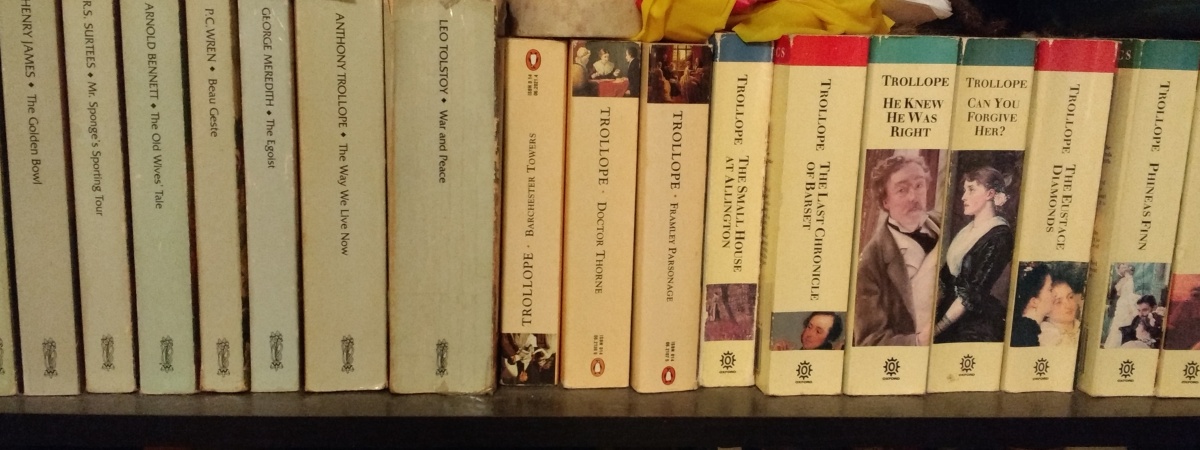
Of course, I also read a lot of Spanish novels, because I could borrow them.
And I have always had a language rule: If it was written in Spanish, I only read it in Spanish; if it was written in English, I only read it in English. Books written in Portuguese, French or Italian, I prefer to read in Spanish (that includes Kundera, who wrote in French). If it was written in German or Russian, I prefer to read it in English. Tolstoy added a lot of French in, so, just to be safe, I’ve read Anna Karenina and War and Peace** in both English and Spanish. I prefer Anna Karenina in Spanish, but War and Peace in English (with the French in French), but of course there are so many translations, that may matter more than the language per se.
There are a lot of authors I’ve only read in Spanish; clearly all those who wrote in Spanish (except Garcia Marquez, since my grandparents gave me One Hundred Years of Solitude when I was in my early teens), but also Proust, Houellebecq, Anais Nin, Saramago, Stendhal…
**to give credit where it is due, I had already read War and Peace (and The Magic Mountain, Narcissus and Goldmund, The Woman in White, Women in Love, and many more) at my mother’s urging, years before. My grandparents had fed me a constant drip of classics from the time I could read. I did not arrive at this point having read only Anne McCaffrey, Ursula K. le Guin, Georgette Heyer, Agatha Christie, David Eddings, and the like; but I mainly read genre fiction, particularly science fiction and fantasy.
I was an accidental scholar, those years at the racetrack, because for the most part, I could only afford classics. I read at least one book a week. Add in the fact that almost all my speaking was done in Spanish, whereas about 2/3 of my reading was done in English… I listened to classical music that was for the most part instrumental or, if vocal, in German or Latin and occasionally French or Italian; except the tangos. I listened to a lot of tangos.
This is probably not an unusual account for an American expat on a shoestring budget. One of the great things about just leaving your home country and forging your way, where no one knows much at all about you, except that you’re a Yankee, and probably stark raving mad, is that you start out with a blank slate. You learn about people from the ground up (especially at a racetrack). I had graduated from Georgetown University. It took two and a half years before the horse-owning, propertied side of my racetrack acquaintances realized I’d even gone to college (sooner or later it becomes impossible to avoid a direct question).
Mexico
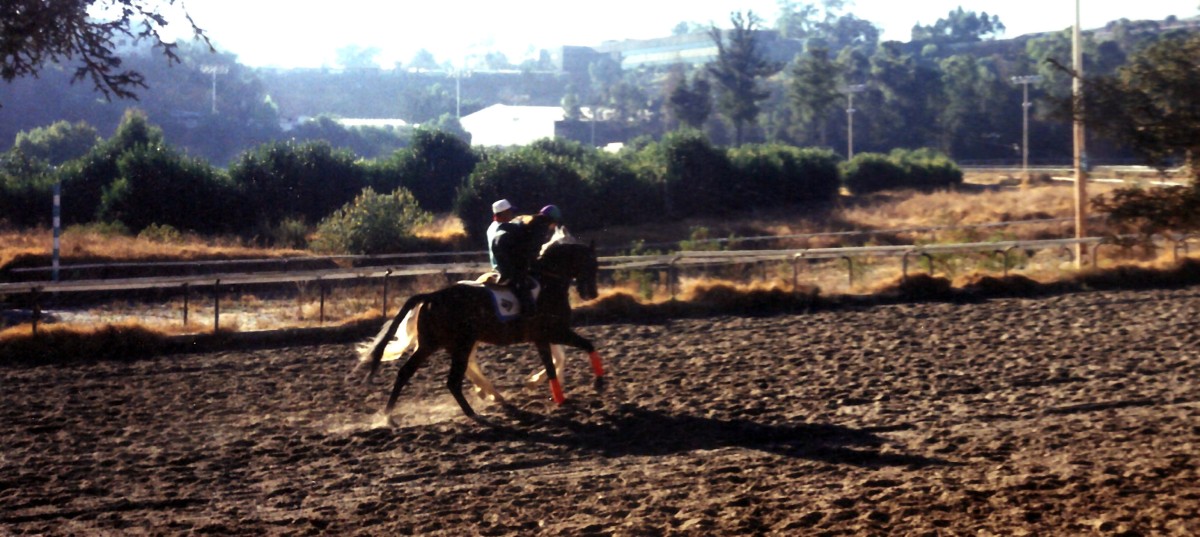
Eventually, and inevitably, I left the full-time racetrack life (although I continued to gallop whenever I could). I moved to Mexico City with my then husband; there I renewed my flute playing, watched every single film that came out in the 18 months we were there (there were seven theatres within walking distance of our flat in Polanco), visited every gallery and museum and exhibition… during this time, my friend Amy got married, and when I saw our mutual friend Stephanie there, she asked how my writing was going. Wow. During the preceding several years, I had forgotten to do more than keep detailed records of horse exercise and feed regimes, and my own intake of wine, films, and books.
I started writing again. I read a lot more books, because I had more money. I began to collect CDs.
Panama
In 1999 we moved to Panama and lived there for over three years. Both my sons were born there. Compared to Mexico City, there was little to do… but I made good friends and became a member of the best book club. Instead of reading the same book every month, we had a huge collection, and we read what we wanted. The rule was, you had to read at least one book each meeting, but I usually read 3-4. That was when I became very conversant with contemporary literary fiction. I’d read books I never would have considered had I not heard other members describe them in flattering–or better yet, controversial–terms.
In Panama I began to think about going back to university. I took a class at Universidad Católica Santa María La Antigua with the name of Bioethics, which I thought would mean medicine, but it really meant the environment.. The professor was Dutch. The class was in Spanish. My term paper was on Radical Ecology. I really had no idea of what radical ecology meant before that class.
On writing
I began writing novels in Panama, and I continued to do so when we moved to Nicaragua in 2002. In fact, writing was pretty much all I did in Nicaragua, other than being a mother, riding my horse, and having an expat social life. I met Enrique Bolaños, then the President of Nicaragua, but I didn’t recognize him. We had a conversation, and I walked away, and then I was told who he was and that I was an idiot (hahaha). To be fair, I am pretty sure that whoever introduced us mumbled his name 😉
I still read–but primarily nonfiction. For some reason, I do not like to read fiction when I am writing the first draft of a novel. I wrote three novels during the 15 months we were in Managua. And I had Readerville, the best online writer and reader site that ever lived and died.
Spain
In 2003, we returned to Spain, originally planning to stay about six months before moving to Bahrain. Ended up getting a divorce and staying in Spain, where I obtained a CELTA certificate, and then was hired by St. Michael’s school, where I taught 4-6 year olds for 1.5 years, and then secondary and baccalaureate for three years.
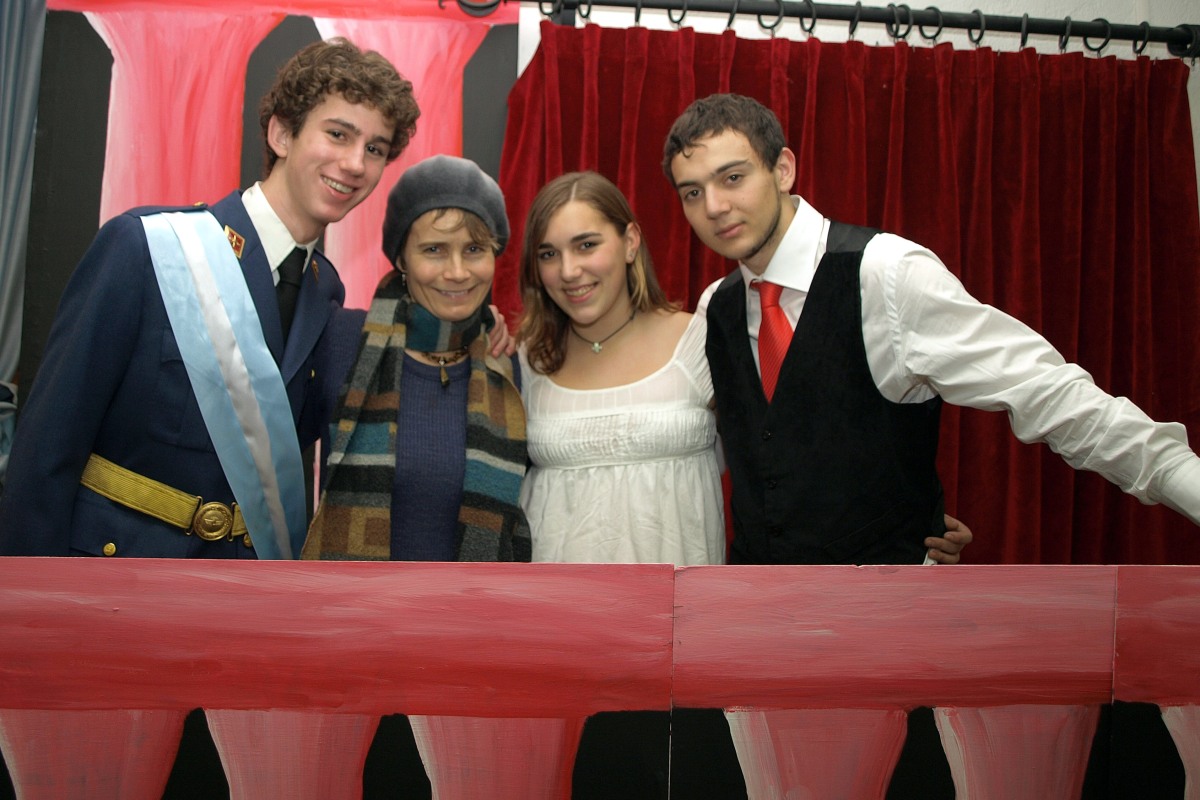
Teaching at St Michael’s was fun, especially once I was moved to the older kids and given the top level students for English. My first class of second year baccalaureate students (aka seniors) was tiny but wonderful. Later classes were also great; challenging, but rewarding. Many of my students have become friends and are still in touch, and I made great friends on the staff. I helped direct three musicals; I was one of three teachers who took the entire (junior year level) class to Italy.
More writing
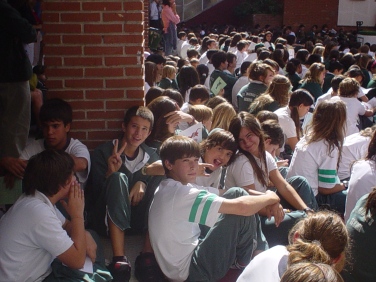
I also continued writing books the entire time I was teaching. Most years, I completed nanowrimo. I read up on how to sell books (get an agent), and attempted to get an agent. I sent around 10 queries, and got discouraged. Since then, I have occasionally sent a flurry of queries.
The only positive result was the response from Trafalgar Square Books, and they told me that although they loved my manuscript, it wasn’t the right thing for a newbie writer, and would I like to write another book, about myself or someone else. That’s where the Cowboy Dressage book came from, thanks to an old friendship with the Beth-Halachmys. And that wasn’t until I was in grad school.
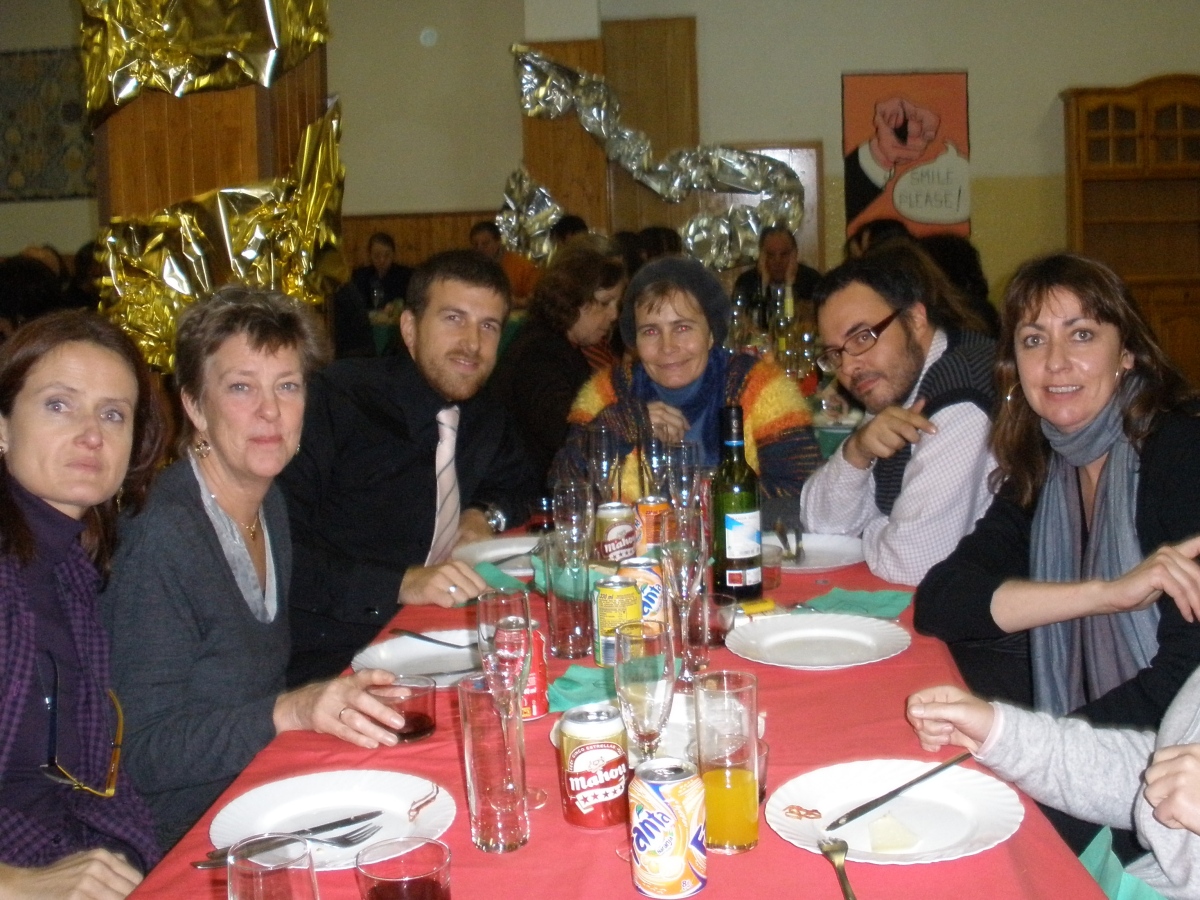
Planning…
By the time I was working at St. Michael’s, I had determined to come back to the States to go to grad school… I thought probably philosophy, since that had been my hobby and passion since my senior year in high school. When my youngest finished first grade (by which time he could read and write in Spanish as well as English), we moved back to California.
It was hard to go… I had a permanent contract at the school, and many good friends. But, I was bored, intellectually. I felt like I lacked mental discipline. I had things to say in philosophy, and I did not know how to say them (in a way that would result in a publication). So we moved to Arcata, CA., and I ended up doing psychology, which is not as good for discussion as philosophy is, but you can do empirical research, and statistics. I love designing studies and analyzing data (collecting it, not so much, but that’s a necessary step).
And now I am about to finish my PhD in psychology
…with more experience than most, precisely because there is a hole in my cv. (see my post about surviving grad school) I have acquired, accidentally, it seems, refined tastes in music, or so they say, including a giant CD collection. I have read more than is probably good for me, and think of everything in the context of fiction. Curiously enough, I have ended up studying fiction quite fortuitously; I set out to study moral cognition (narrative moral agency in particular), and stumbled upon my advisor’s short description on the OU psych department page: it had morality and fiction in the same tiny paragraph, and I thought, hmm, that sounds interesting.
Many many times I have wanted to say (and I have sometimes said it) that fiction has expressed a concept far better, many times. That Tolstoy and Trollope and DH Lawrence could tell you more about what motivates human behavior than any textbook or research article. That awe can be found listening to Brahms Requiem. That teaching preschool is an excellent way to learn developmental psychology. That racing horses shows you that time perception is relative. That language shapes thought, just try doing philosophy in another language (so yeah, I’ve got an answer to that question).
Sometimes I am bewildered by the ignorance of some very educated–if by this we mean years spent on higher education–people when it comes to literature, history, and music. Of course, they have spent their time in other ways. But this ignorance is often combined with a disdain for the popular–genre fiction, music–and distrust of the rural–horses, ranches, racetracks. And that’s interesting indeed.
Sometimes there is a lot going on in a gap decade and a half.
coda: must avoid another gap in my cv
It’s been over eight years since we returned to the states. I have not yet reached the point where I will have lived half of my adult life in the USA. Arcata was wonderful (I could see the Pacific from my back porch and had redwoods in my yard), and Norman has been a good place to live, but I really miss living abroad. I miss capital cities: I miss diversity of language, skin, culture, thought. I miss culture, public transport, and the smell of an underground train in steam coming up through a grate on a cold day. It’s been great this semester, hanging out with others at the Institute for the Study of Human Flourishing, not least because we are a diversity of discipline, thought, language, and culture (but mainly because we talk philosophy).
I had a phone interview (that didn’t progress to more) with St. John’s University (Queens). The main question seemed to be, could I live in NYC? And my hesitation about the position was undoubtedly evident, but it wasn’t because I couldn’t live in the city (besides, both Belmont and Aqueduct are within 6 miles of the university). Oh there are downsides (where could I keep a horse?) but… oh the culture! When I was in Boston last May, I wanted to wallow in it, in trains and sidewalks and people and the anonymity of the city. I can adapt anywhere, but there is more in a city.
Where to, where to…
For many reasons, I would like to stay in the States, but I do miss life as an expat, and ever since last November, I have been contemplating the possibility of relocating. Perhaps not permanently, not yet, but at least for a few years.
In my fairy tale life, I would live in a horse ranch, in the country, but close enough to a major university to be on the faculty–conduct research with a light teaching load. AND I would have enough money to fly to Paris, Madrid, Vienna, Mexico City, anywhere I wished, whenever I had the time. But that’s an unlikely scenario.
Right now, I’d settle for a nice post doc someplace outside of the Bible Belt.
such is life, per Goethe and Schubert:
but also, perhaps:




Cities are wonderful places to live, as long as you have the means to escape for a while now and again.
I think “gap” is a poor term, isn’t it, for a lacuna in formal academic history. As if there is nothing going on in the world at large, And, the disdain from the “ivory tower” windows can be both amusing and sadly ignorant.
Good job assuring us all that you weren’t in prison or living on a commune.
Nice blog.
Pingback: Why do successful people commit suicide? In memory of Dr. Ben Shaffer